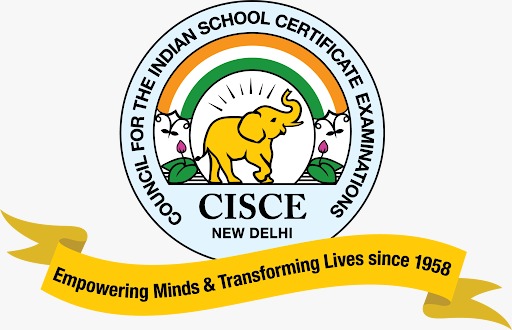Archimedes of Syracuse, a Greek mathematician, physicist, engineer, inventor, and astronomer, is often hailed as the Father of Mathematics. His groundbreaking contributions to mathematics and science have left an indelible mark on these fields, shaping the course of history and influencing countless generations of scholars. Students studying in Cambridge syllabus schools often encounter Archimedes’ principles in subjects like mathematics and physics, where his work on geometry, calculus, and fluid mechanics continues to be relevant. This blog delves into Archimedes’ life, his significant contributions, inventions, and lasting legacy, exploring why he holds the esteemed title of the Father of Mathematics.
Early Life and Education
Archimedes was born around 287 BC in the ancient city of Syracuse on the island of Sicily. His early education was influenced by his father, Phidias, who was an astronomer. Archimedes’ thirst for knowledge led him to study in Alexandria, Egypt, one of the ancient world’s great centers of learning. There, he was exposed to the works of Euclid and other prominent mathematicians, which profoundly shaped his thinking and future work.
Major Contributions to Mathematics
Archimedes made numerous contributions to mathematics that are still influential today. Here are some of his most notable achievements:
Calculation of Pi
Archimedes was the first to calculate an accurate approximation of Pi (π). Using a method involving inscribed and circumscribed polygons, he determined that Pi lies between 3 1/7 (approximately 3.1429) and 3 10/71 (approximately 3.1408). This method was revolutionary and set the foundation for future calculations of Pi.
Archimedes’ Principle
One of his most famous contributions is Archimedes’ Principle, which states that a body immersed in a fluid experiences an upward force equal to the weight of the fluid displaced by the body. This principle is fundamental to the field of fluid mechanics and has numerous practical applications, from shipbuilding to measuring the density of objects. Understanding such concepts is as essential as knowing how to use a trigonometry table, as both provide fundamental tools for solving mathematical and scientific problems.
Work on Levers and Pulleys
Archimedes is also renowned for his work on the mechanics of levers and pulleys. He famously stated, “Give me a place to stand, and I shall move the Earth,” illustrating the power of leverage. His studies laid the groundwork for the principles of mechanical advantage, crucial for the development of engineering and machinery.
Development of Calculus Concepts
Long before the formal development of calculus, Archimedes used methods resembling integral calculus to find areas, volumes, and surface areas of various geometrical shapes. His work on the quadrature of the parabola and the volume of a sphere segment showcased his advanced understanding of these concepts.
Contributions to Geometry and Volume Calculations
Archimedes made significant contributions to geometry, particularly in calculating the areas and volumes of shapes. He derived formulas for the surface area and volume of a sphere and a cylinder, demonstrating a profound understanding of spatial mathematics.
Inventions and Discoveries
Archimedes was not just a mathematician; he was also an ingenious inventor whose creations have had lasting impacts.
Archimedean Screw
One of his most famous inventions is the Archimedean screw, a device for raising water. This screw-shaped device could lift water efficiently and was used for irrigation and draining fields. It is still in use today in various forms.
War Machines and Defenses
Archimedes applied his mathematical prowess to design war machines to defend Syracuse from Roman invasion. These included catapults, the Claw of Archimedes (a crane-like device that could lift and capsize enemy ships), and possibly a giant mirror to focus sunlight and set ships on fire.
Innovations in Engineering
Archimedes’ innovations in engineering extended beyond military applications. He developed compound pulleys to lift heavy objects with minimal effort, showcasing his deep understanding of mechanical principles.
Impact on Future Generations
Archimedes’ influence extends far beyond his lifetime, impacting numerous mathematicians, scientists, and engineers.
Influence on Later Mathematicians and Scientists: Archimedes’ work laid the groundwork for later mathematicians such as Isaac Newton and Gottfried Wilhelm Leibniz, who developed calculus. His methods and principles continue to be foundational in mathematics and physics.
Legacy in Modern Mathematics and Science: The principles and theories formulated by Archimedes are still taught in modern mathematics and physics curricula. His work on geometry, calculus concepts, and fluid mechanics remains relevant and influential.
Archimedes’ Writings and Their Preservation: Many of Archimedes’ works were preserved through the efforts of later scholars. Manuscripts like “The Method of Mechanical Theorems” and “On Floating Bodies” were copied and studied by scholars throughout the centuries, ensuring that his contributions were not lost to history.
Archimedes’ Famous Works
On the Sphere and Cylinder
In this work, Archimedes proved that the surface area of a sphere is equal to four times the area of its greatest circle and that the volume of a sphere is two-thirds the volume of the smallest cylinder that can contain it. These findings were revolutionary and remain fundamental to the study of geometry.
The Method of Mechanical Theorems
This manuscript revealed Archimedes’ process of discovery, where he used mechanical means to arrive at mathematical truths. It provided insight into his use of infinitesimals, a precursor to integral calculus, to determine areas and volumes.
On Floating Bodies
This treatise includes the principle now known as Archimedes’ Principle, which explains the buoyancy of objects in a fluid. It laid the foundation for hydrostatics and has numerous practical applications in engineering and science.
Archimedes’ Legacy in Modern Mathematics
How His Work is Used Today: Archimedes’ principles are foundational in various fields of modern science and engineering. His methods for calculating areas and volumes are used in integral calculus, and his work on levers and pulleys informs mechanical engineering.
Examples of Archimedean Principles in Contemporary Science: The Archimedean screw is still used in water management and agricultural irrigation. Archimedes’ Principle is applied in designing ships and submarines to ensure they float correctly. His work on levers is fundamental in the design of various tools and machines.
Conclusion
Archimedes’ contributions to mathematics and science have earned him the title of the Father of Mathematics. His innovative methods, profound discoveries, and enduring inventions have left a legacy that continues to influence modern science and mathematics. Students at the best schools in Kadugodi often study Archimedes’ principles as part of their curriculum, gaining insights into his work on geometry, calculus, and mechanics. By bridging the gap between theoretical concepts and practical applications, Archimedes set the stage for future advancements and remains a towering figure in the history of mathematics.
FAQs (Frequently Asked Questions)
Archimedes’ most significant contributions include the calculation of Pi, the formulation of Archimedes’ Principle, his work on levers and pulleys, early concepts of calculus, and his advancements in geometry and volume calculations.
Archimedes calculated the value of Pi using a method involving inscribed and circumscribed polygons, approximating Pi to lie between 3 1/7 and 3 10/71.
The Archimedean screw is a device used to raise water efficiently. It consists of a screw inside a hollow pipe, which, when rotated, lifts water from a lower level to a higher one.
Archimedes’ work laid the groundwork for many modern mathematical and scientific principles. His methods influenced the development of calculus, his principles are foundational in mechanics and hydrostatics, and his inventions continue to be used in various applications.
Some of Archimedes’ famous works include “On the Sphere and Cylinder,” “The Method of Mechanical Theorems,” and “On Floating Bodies.”








